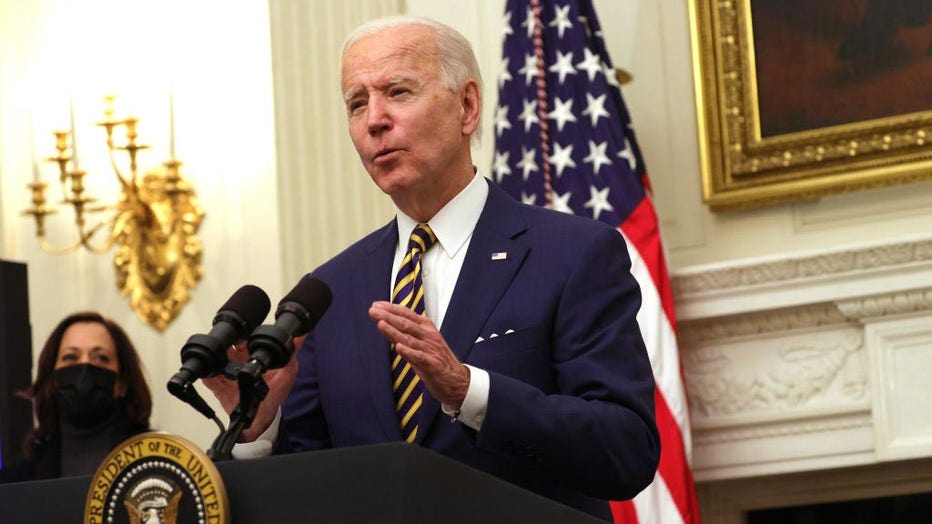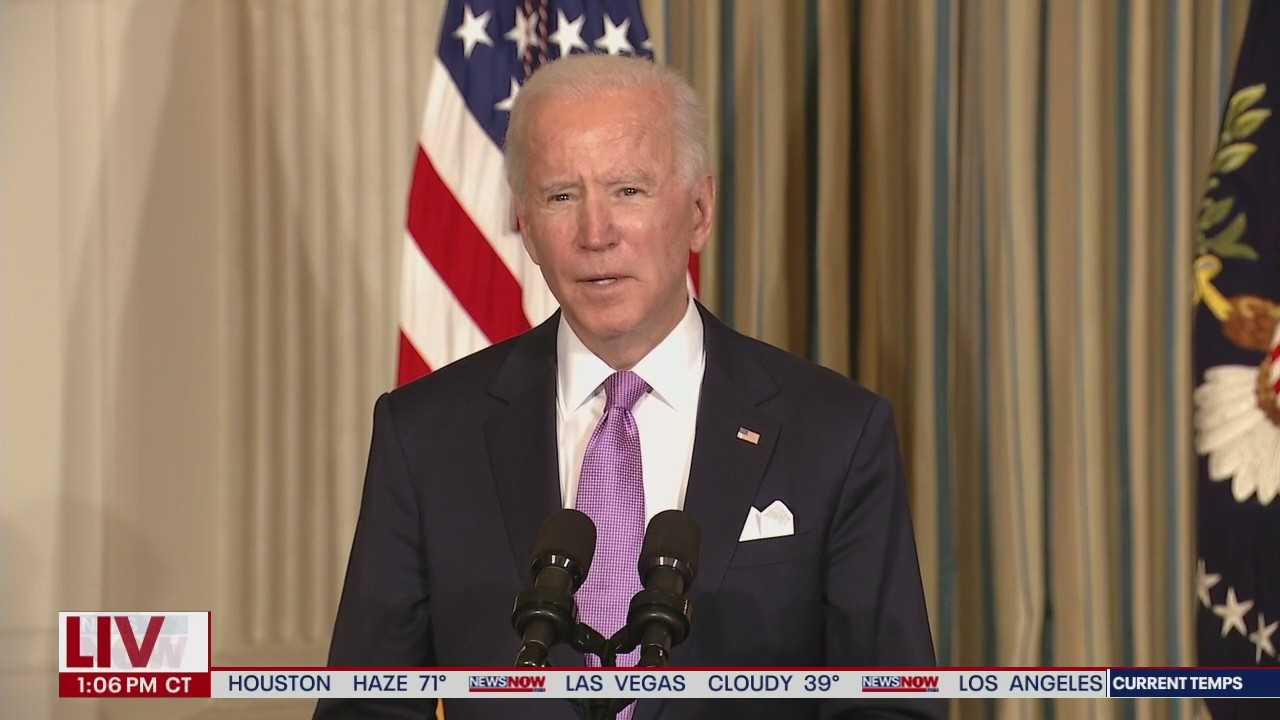Biden orders DOJ to end reliance on private prisons as part of executive actions on racial equity
WASHINGTON - President Joe Biden on Tuesday outlined his agenda for racial equity in the U.S., ordering the Department of Justice to end its reliance on private prisons and acknowledging the central role the government has played in implementing discriminatory housing policies.
Biden signed a series of orders and memorandums, pledging to make combating racial injustice a central focus of his presidency. The event capped off the president’s first week in office, in which he has signed several executive orders related to the country’s COVID-19 response and undid many of former President Donald Trump’s policies on immigration and environmental deregulation.
Biden said calling on the Justice Department to curb the use of private prisons was "just the beginning" of his administration’s plans to address systemic racism in the criminal justice system.
"We must change now," the president said. "I know it’s going to take time, but I know we can do it. And I firmly believe the nation is ready to change. But government has to change as well."
The new orders also recommit the federal government to respect tribal sovereignty and disavow discrimination against the Asian American and Pacific Islander community over the coronavirus pandemic.
Additionally, Biden directed the Department of Housing and Urban Development to take steps necessary to promote equitable housing policy.
"President Biden has made clear, advancing equity is everybody’s job," White House domestic policy adviser Susan Rice said prior to the event.

President Joe Biden speaks as Vice President Kamala Harris looks on during an event on economic crisis in the State Dining Room of the White House Jan. 22, 2021 in Washington, D.C. (Photo by Alex Wong/Getty Images)
same posture it held at the end of the Obama administration.
The order highlighting xenophobia against Asian Americans is in large part a reaction to what a senior administration official called "offensive and dangerous" rhetoric from the Trump administration that Biden believes need to be addressed. Trump, throughout the pandemic, repeatedly referred to the coronavirus as "the China virus."
This memorandum will direct Health and Human Services officials to consider issuing guidance describing best practices to advance cultural competency and sensitivity towards Asian Americans and Pacific Islanders in the federal government’s COVID-19 response. It also directs the Department of Justice to partner with AAPI communities to prevent hate crimes and harassment.
RELATED: Biden orders review of domestic terrorism threat in US
Just hours after taking the oath of office, Biden signed a series of executive actions related to immigration, climate change, racial equity and the handling of the coronavirus pandemic. One order instructs federal agencies to prioritize racial equity and review policies that reinforce systemic racism.
Biden also revoked two Trump orders related to the 2020 census. The first attempted to discern the citizenship status of every U.S. resident, and the second sought to exclude people in the U.S. illegally from the numbers used for apportioning congressional seats among the states.
Biden also signed an order Monday reversing a Trump-era Pentagon policy that largely barred transgender people from serving in the military. Last week, he signed an order reversing Trump's ban on travelers from several predominantly Muslim and African countries.
Rice, in her comments on Tuesday to reporters, made clear that Biden sees addressing equity issues as also good for the nation's bottom line. She cited a Citigroup study from last year that U.S. gross domestic product lost $16 trillion over the last 20 years as a result of discriminatory practices in a range of areas, including in education and access to business loans. The same study finds the U.S. economy would be boosted by $5 trillion over the next five years if it addressed issues of discrimination in areas such as education and access to business loans.
"Building a more equitable economy is essential if Americans are going to compete and thrive in the 21st century," Rice added.
Rice is a longtime Democratic foreign policy expert who served as President Barack Obama’s national security adviser and U.N. ambassador. Overseeing the White House Domestic Policy Council, she’s expected to play an active role in the Biden administration’s response to the coronavirus pandemic, as well as issues related to health care, immigration and tackling racial inequality.
Throughout his campaign and transition, Biden promised that his administration would keep issues of equity — as well as climate change, another issue he views as an existential crisis — in the shaping of all policy considerations.
RELATED: Biden signs executive order for government to buy more US goods
Biden’s victory over Trump in several battleground states, including Georgia, Michigan, Pennsylvania and Wisconsin, was fueled by strong Black voter turnout.
Biden, who followed through on an early promise to pick a woman to serve as vice president, has also sought to spotlight the diversity of his Cabinet selections.
On Monday, the Senate confirmed Biden’s pick for treasury secretary, Janet Yellen, who will be the first woman to lead the department. Last week, the Senate confirmed Lloyd Austin as the nation’s first Black defense secretary.
The Associated Press contributed to this report. It was reported from Cincinnati.


